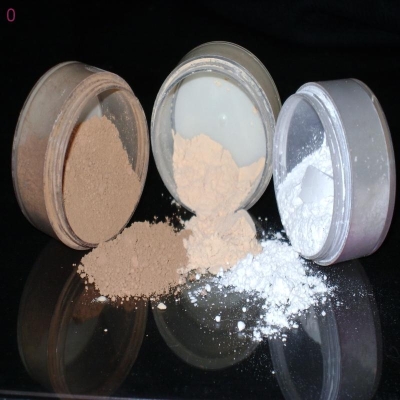German biopicists have discovered new weaknesses in the new coronavirus
-
Last Update: 2021-01-23
-
Source: Internet
-
Author: User
Search more information of high quality chemicals, good prices and reliable suppliers, visit
www.echemi.com
BERLIN, Jan. 11 (Xinhua Li Shan) -- German bioinsyngraphers have identified an enzyme in the human body that is essential for the reproduction of the new coronavirus through computer models, and if it is inhibited, the virus will stop multiplying without affecting the host cells. The study could help find new ways to combat new coronavirus infections.
the vaccine, finding effective drugs to treat new coronavirus infections is also one of the most important ways to fight the outbreak. Now, Dr. Delger and his team from the German Center for Infection Research and the University of Tybingen have discovered a new vulnerability to the new coronavirus that could be used to develop targeted drugs. Bioinsyngraphers use computer models to identify a human enzyme that is critical to viruses. "If we turn off this enzyme, bird nucleotide kinase 1 (GK1), the virus stops multiplying without affecting the host cells," Dr. Delger said.
Delger, a young professor at the University of Tybingen who has been working on the new coronavirus since January 2020, is responsible for computer-based systems biology, focusing on optimizing the development and progression of diseases at the biotechnology and molecular levels. They have successfully developed integrated computer models with new coronavirus and human pulmonary macrophages. Macrophages are primarily responsible for protecting against foreign those in the albaph bubble, Delger said. The
the model is that the virus has penetrated into the host (i.e., the human vesicle macrophages in the model) and has been reprogrammed. If a virus wants to produce new virus particles and spread them, it must use materials from the host and force the host cells to produce new viral components. "The bio-chemical reactions used by viruses in the host have been integrated into the model," Delger said. We first analyze the composition of the virus, then calculate the material needed to produce the virus particles, and see how the bio-chemical response in the host cell changes during the infection. In
so-called flow balance analysis, scientists systematically tested which bio-chemical reactions occurred in infected cells with those in unoctaped cells. Through these reactions, they can begin further experiments. By specifically shutting down selected reactions, they tracked processes that were particularly important to the virus. For example, when bird nucleotide kinase 1 is turned off, the virus can be completely prevented from multiplying. In the follicle macrophages, this enzyme plays an important role in the metabolism of RNA components and therefore in the composition of the new coronavirus RNA.
can't replicate without the GK1 virus, but human cells can switch to other bio-metabolic pathways, " explains Mr. Nerger. "This is an important prerequisite if you want to inhibit enzymes with active ingredients without adverse side effects on the human body. Currently, the Delger team is working with Dr. Bernhard Ehringer of the Fraunhofer Institute of Molecular Biology and Applied Ecology to test the effectiveness of inhibitors against the new coronavirus. Some enzyme inhibitors are known, and the Hamburg-based Fraunhofer study includes a complete library of more than 5,600 active substances, all of which, crucially, have been approved for safe use in humans.
even so, scientists will have to conduct rigorous tests after finding the right active ingredient in the lab. First in animals, then in humans. Only in this way can one fully grasp the interaction between the active ingredient and the immune system. Experts expect the drug, which targets the new coronavirus, to be approved as early as the end of 2021 after clinical trials, if all goes well. "Maybe we can't fight the virus 100 percent, but we can only stop 90 or 85 percent of the virus from multiplying, " Eringel explains. But if you win enough time for your immune system, the results are obvious. In addition, it is to be expected that this basic approach to viruses can be applied to all mutations of the new coronavirus. ”
This article is an English version of an article which is originally in the Chinese language on echemi.com and is provided for information purposes only.
This website makes no representation or warranty of any kind, either expressed or implied, as to the accuracy, completeness ownership or reliability of
the article or any translations thereof. If you have any concerns or complaints relating to the article, please send an email, providing a detailed
description of the concern or complaint, to
service@echemi.com. A staff member will contact you within 5 working days. Once verified, infringing content
will be removed immediately.







